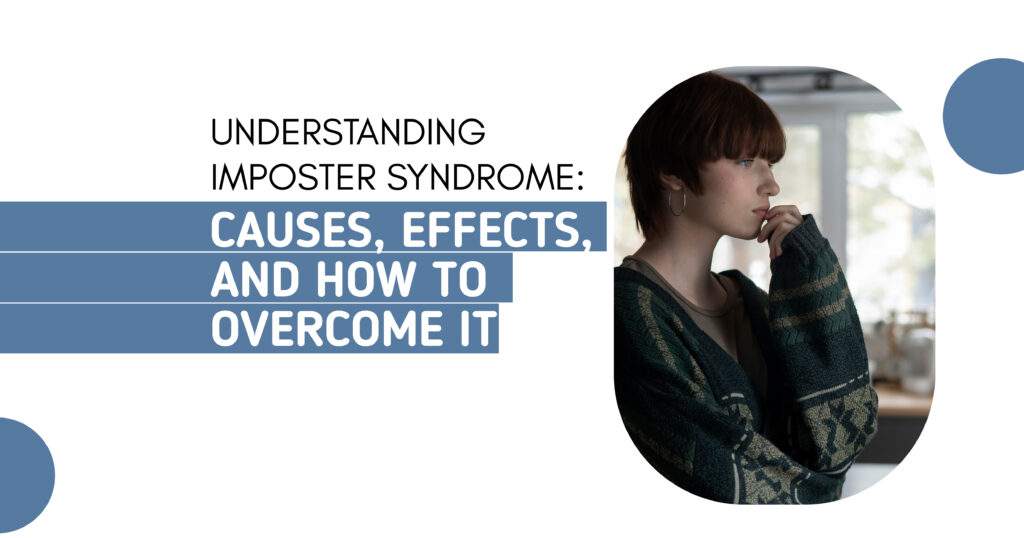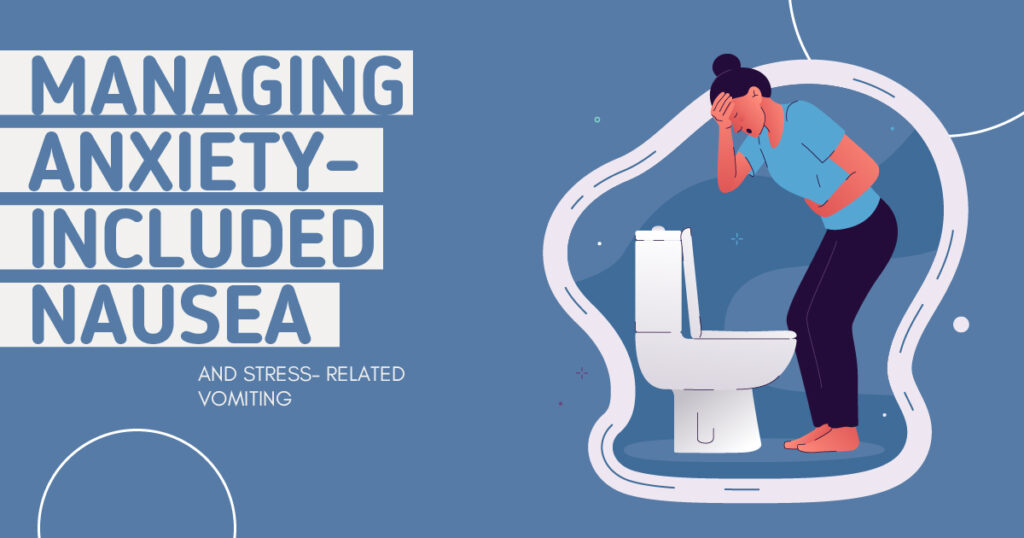Do you ever have the feeling of being an imposter? You have managed to fool everyone around that you are competent, but inside, you just wait for the day that someone discovers you are not as competent as everyone thinks you are. Well, you are not alone. There is a name for this feeling: Imposter Syndrome.
Essential Takeaways
- Awareness is Key: The first step to defeating it would be recognition of the signs and symptoms of Imposter Syndrome. Self-reflection can be very helpful in understanding feelings better.
- Seek Support: Building a network of friends, mentors, or professionals can help provide validation and encouragement as you work through your feelings of self-doubt.
- Learn to see failures as part of growth: Cultivate self-compassion by making achievable goals to counter feelings of inadequacy.
This is a pervasive psychological pattern that can affect anyone, regardless of accomplishments or expertise. In this blog post, we are diving deep into what is sometimes called the Imposter Syndrome, what it is, what triggers it, how it impacts our lives, and, most importantly, how we can overcome it.
Whether you’re an experienced pro in a very competitive field or a student dealing with the pressures of academic life, Imposter Syndrome can creep in and start to affect your self-perception. Let’s break it down together.
San Diego Mental Health
What Is Imposter Syndrome?
Imposter Syndrome, also commonly known as the imposter Phenomenon, refers to an internal experience in which you think you are not as competent as others may have perceived you to be. People with Imposter Syndrome often dismiss their achievements by putting them down as lucky or falling from the grace of external factors rather than their skills or intelligence.
The term was first discovered and coined by psychologists Pauline Clance and Suzanne Times in 1978 in their research on high-achieving women. Despite excelling in almost every walk of life, most of these women described themselves as impostors who did not feel worthy of all their success. Over the years, various research studies have established that Imposter Syndrome is not limited to only women and cuts across genders and backgrounds.
Common Myths About Imposter Syndrome
Before we begin to look at the causes, let’s debunk a few common myths surrounding Imposter Syndrome:
- Myth 1: Only people with low self-esteem experience it
Many of us believe that only those who have low self-esteem would suffer from this sort of syndrome. On the contrary, it doesn’t show partiality towards any and can even befall the high-achievers and perfectionists.
- Myth 2: It’s Just a Phase
It is said to be just a passing phase, but for many, it is a chronic problem that arises now and then during one’s working career.
- Myth 3: It’s a Sign of Weakness
Imposter Syndrome does not make you a weakling or an incapable one. It is a normal psychological process, indicative of the rigors of life and of societal expectations.
The Causes of Imposter Syndrome
Psychological factors
The Imposter Syndrome often has its roots in several psychological factors, among which are:
- Perfectionism. Many individuals with Imposter Syndrome possess impossibly high standards for themselves. When they inevitably fall short, they believe themselves to be failures.
- Fear of Failure. A deep-seated fear of failure can foster the feeling of inadequacy. Those with this syndrome often fear that should they make a mistake, they will be “found out” as frauds.
- Neuroticism. People scoring high on neuroticism, which includes anxiety, emotional instability, and moodiness, are more prone to Imposter Syndrome.

Social and Environmental Influences
Imposter Syndrome has been linked to many environmental factors that can greatly contribute to this condition:
- Family Expectations. Growing up with a history of family members who always achieve can make someone feel pressured and inadequate. Internally, this may lead to the belief that self-worth is contingent upon achievement.
- Cultural Background. Cultural expectations and societal norms also play a part. For example, the imperatives of a person from a collectivist culture to perform well could make him feel more inadequate.
- Workplace Dynamics. Working in a competitive environment with high achievers around you can make you feel that all those bright minds would be competing against you, thus making you doubt yourself.
Gender and Imposter Syndrome
Studies have actually shown that experiences of gender affect imposter experiences. Women, for example, may feel more the pangs of it because of societal expectations and stereotypes. For example, women could be driven to prove their competence in male-dominated fields to feel a sense of self-doubt and inadequacy.
Similarly, those from the minority categories could receive more pressure since the pressure mounts with the dilemma of representation and performance. It becomes very challenging for these members to keep control when they face a situation that requires them to maneuver through a noninclusive or uncompassionate environment.
The Effects of Imposter Syndrome
Mental Health Implications
The implications of this Imposter Syndrome can be profound and severely affect someone’s mental health. Here’s how it may appear:
- Anxiety. The feelings of being a fraud can be very anxious-ridden. You are worried about being found out, leading to a high sense of tension and stress.
- Depression. These can develop into depression, feelings of sadness or hopelessness, and, over time, clinical depression. The emotional battle of feeling inadequate will wear away at one’s self-esteem.
- Burnout. The pressure of constant proving can kill people as they put in extra effort to fill the gaps.
Professional Consequences
Imposter Syndrome affects psychological well-being and has grave implications in your career.
- Career Development. People with Imposter Syndrome may not apply for a promotion or even a new set of responsibilities and opportunities for advancement because they fear they might not cope with failure.
- Job Performance. The chronic fear of “being found out” may also cause stress and, therefore, adversely affect job performance, resulting in overpreparation or act-induced hesitation. In the workplace, Imposter Syndrome affects relationships. People with this syndrome are thus discouraged from relating to their peers at work as they fear criticism or disownment.
Personal Relationships
Imposter Syndrome can also creep into personal relationships. You may feel this inadequacy, creating distance between your friends and family. You may be hesitant to share your achievements or even your struggles because you fear being seen as boastful or weak.

In addition to this, a person who suffers from Imposter Syndrome can be anxious and stressed, which might contribute to conflicts and misunderstanding, and even low emotional availability, straining the relationship.
San Diego Mental Health
Recognizing Imposter Syndrome in Yourself
Common Signs and Symptoms
Overcoming Imposter Syndrome starts by noticing the signs. So, what are some common signs of this type of thinking?
- Fear of Failure. You consistently fear failure and, in fact, reveal you as a fraud.
- Discounting Achievements. You play down your successes as luck or actions beyond your control.
- Overworking. You work hard, sometimes pushing all hours of the day and night, believing you must prove yourself.
- Setting unrealistically high standards for yourselves with feelings of unmet expectations.
- Comparing yourself always to others and finding yourself inferior.
Self-Reflection and Awareness
Self-reflection can also become a strong tool in identifying and overcoming Imposter Syndrome. Here are some prompts to help you get started on reflecting on those feelings:
- What have I been diminishing or “not so big deals”?
- How often do I draw comparisons with other people?
- What fears are there for my skills?
- Are there specific situations that make me feel inadequate?
Reflecting on your experiences will help you understand your thought processes and practices better.
Strategies for Overcoming Imposter Syndrome
Obviously, to overcome Imposter Syndrome, one needs patience and self-compassion. Here are the most effective strategies for you:
Techniques of Cognitive Behavior
- Cognitive-behavioral therapy is the therapy approach that changes negative patterns of thinking. Here are some techniques:
- Reframe negative thoughts. Challenge any thoughts identified as negative and examine whether they are based on facts or feelings. Replace them with positive affirmations or assessments regarding one’s ability.
- Maintaining a Success Journal. Start writing down your accomplishments, no matter how small. Focusing on your successes helps you build a better sense of an accurate self-image.
Building a Support Network
Connecting can be very helpful in working through Imposter Syndrome. Here’s how you can build a supportive network:
- Share Your Feelings. Talk to trusted friends, family, or mentors about your experiences. Opening up can release the feeling of isolation and enable you to recognize that you are not alone.
- Find a Mentor. Find someone who will guide, support, and affirm. A mentor will walk you through your struggles and remind you of your strengths.
Learning to Live With Failure and Flaws
Learn that failure is an element of learning. First, redefine what has happened as a failure to learn rather than whose fault or who is not good enough. Everyone who was something at some time in history faced failure on the path to their success.
Setting Realistic Goals
Setting realistic goals helps in fighting feelings of inadequacy:
- Break Up Goals. Instead of making ‘pie in the sky’ goals, break them into smaller, manageable ones. Take pride in achievements at every step on the way.
- Focus on the Process. Instead of the end result, focus on the journey. Enjoy the effort and growth that comes with working toward your goals.
Seek Professional Help
If such feelings persist or become overwhelming, it is advisable to seek professional help:
- Therapy or Counselling. A professional should be able to accompany you, support you, and teach you certain coping techniques that will serve you better.
- Support Groups. Connecting with people facing similar problems is possible through support groups.

End of Discussion
Imposter Syndrome affects many people, regardless of their knowledge or experience. By educating yourself about the cause, identifying its impact, and implementing effective strategies, you can overcome those feelings of inadequacy and be the person you truly are.
Remember, you are not alone in this journey. It does not come overnight; building self-confidence in yourself takes time and considerable effort to silence self-doubts, but the rewards always make it worthwhile. It is okay to be proud of successes, learn from failures, and never be unkind to yourself.
San Diego Mental Health
FAQs
- What is the difference between Imposter Syndrome and low self-esteem?
Imposter Syndrome refers solely to feelings of inadequacy and self-doubt about one’s accomplishments and capabilities, generally within a context of positive reinforcement by others. Low self-esteem is a general lack of confidence about oneself and one’s value.
- Can you develop Imposter Syndrome in your career?
Yes, there can be lost opportunities for advancement with imposters because people hardly accept promotions or new jobs owing to the fear of being “discovered” as frauds.
- Does this impostor syndrome haunt most high achievers?
Of course! High achievers very often fall into this trap because they set extremely high expectations for others and are scared of not achieving that.
- How do you help a friend who has Imposter Syndrome?
Remind your friend that it’s okay to talk openly about his feelings, listen actively, and validate his emotions. Try to normalize his feelings by sharing experiences of struggles you may have faced or, even better, of people you admire.
- Are there books or other resources that may help me process the feelings of Imposter Syndrome?
Many books focus on this topic, such as “The Secret Thoughts of Successful Women” by Valerie Young and “Daring Greatly” by Brené Brown. Such resources may be able to supply perspectives with ideas on how to deal with insecurities.








